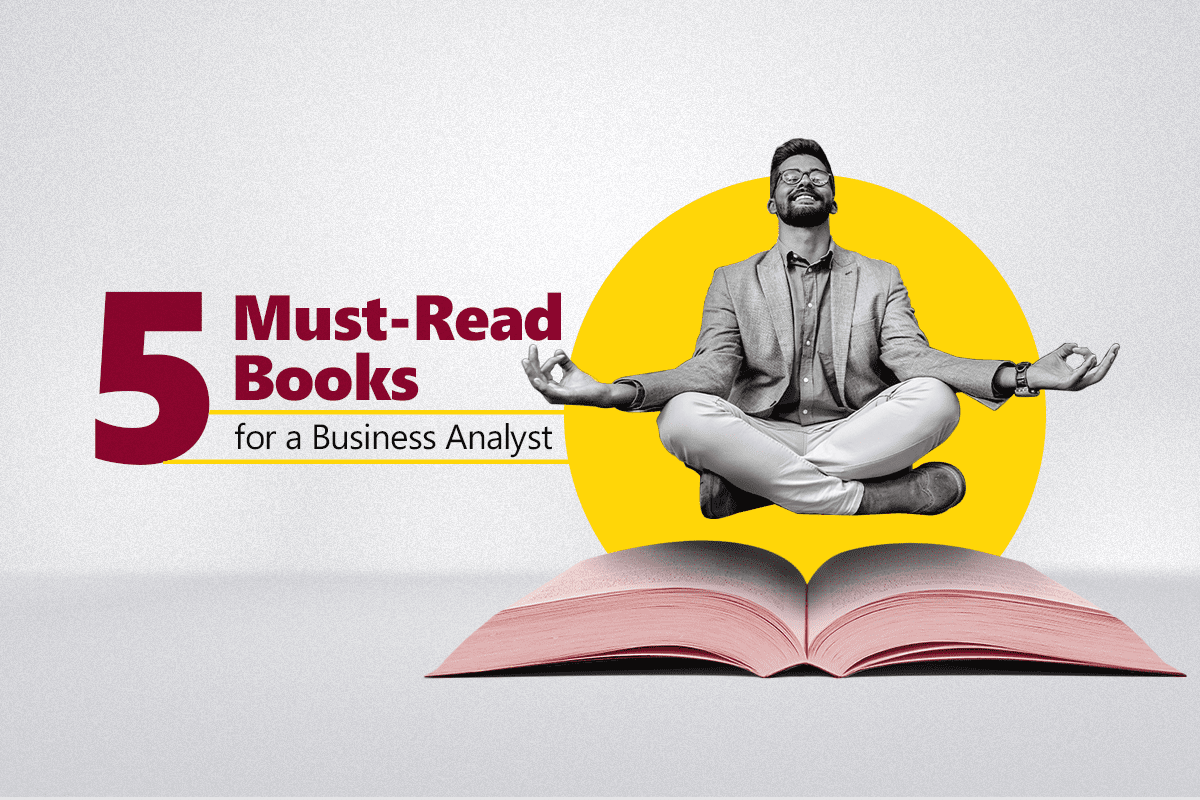Blogs
Recent Posts
Categories
Archives
Want to be a successful marketer? You must understand Consumer Behavior very well
- March 3, 2023
- | adminblog
- | MBA Advice
- | No Comments
An in-depth understanding of the consumer’s buying behaviour enables marketers to get an idea of what makes the consumer buy or reject their product if it satisfies their need. It enables marketers to understand not only the habits of consumers but also the factors that influence their decision to buy a specific product.
Consumer behaviour empowers a marketer with rich insights about his target audience. The insights can be useful while they develop and launch a product into the market. Consumer buying behaviour also enables them to create the right messaging and positioning while promoting the products. It enables to create attractive marketing campaigns that resonate with the target audience and augment sale of the product.
The study of consumer buying behaviour helps marketers to understand why customers buy their products, when they do it, and what is their frequency of purchase. It also enables them to understand their most preferred brands in the category, the price at which they are comfortable buying the product, and whether they like to purchase it online or at a physical store only after taking a close look at the product and the other options available.
Why is consumer behaviour important?
Consumer behaviour enables a company to understand the positioning and timing of introduction of a new product. The successful launch, sales, and capture of market share are all related to how well a company has utilized its understanding of its consumer’s buying behaviour.
As mentioned by Jack Trout in the book ‘Differentiate or Die’, the consumers already have a pre-decided preference in their mind on the products/ brands they want to purchase. To actually break their pre-conceived notions, a product or a brand must be presented with a ‘difference’. That’s where consumer buying behaviour insights can help significantly. Unless a marketer and his company can anticipate how a customer would respond to a particular proposition or differentiation strategy, the product may not get the desired response.
Factors that influence consumer buying behaviour?
Consumers are influenced by a wide range of factors. They may have more disposable income which may lead to a change in their lifestyle and preference for more expensive brands. Technology, peer reviews, word-of-mouth, and many other factors could also make consumers change their buying behaviour.
3 Reasons why Marketers should rely on insights from Consumer Buying behaviour?
Consumer behaviour helps a marketer to plan his strategy in order to ensure effective reach and recall among the target audience. It can also help to position the product with apt messaging or brand proposition.
What else can understanding of consumer behaviour do for marketers?
- Consumer differentiation: A marketer can create new cohorts among the target audience if he understands consumer buying behaviour better. Each cohort or sub-group may have their unique traits and may respond better to certain aspects of the product such as price, usability, durability etc. Accordingly, a marketer can try to tweak positioning subtly and target these cohorts more precisely to drive better sales.
- Anticipating Trends: By carefully observing and evaluating consumer buyer behaviour, marketers can understand emerging trends. Once these trends are identified and evaluated for consistency, marketers can pivot their marketing strategies and campaigns by optimizing the use of budgets and human capital to align with these trends. With digital technologies at their disposal, marketers can ‘go-to-market’ faster with their new ideas, A/B test their strategies, and swiftly arrive at the best ones that resonate very well with their target audience and existing customers.
- Create new and innovative products: Marketers who keep a keen eye on consumers buying behaviour can not only spot trends but also understand how to encash on some peculiar behaviours. Such marketers may identify some new opportunity or lacunae in the market that competitors may have missed or decided to overlook. It can lead them to a ‘blue ocean’ which is untapped. They can create new and innovative products to cater to this gap in the market and gain a definite edge over competing products and companies. In the process, they can gain market share and may also establish a new category in the process.
In conclusion, understanding of consumer buying behaviour is one of the most potent weapons in the marketer’s arsenal. A marketer who understands, analyses, and applies this to his product/ brand strategy, segmentation, targeting, and positioning, can enhance sales of his products, build excellent brand recall, and also create newer variants of the products that enhance the appeal for a wider range of target audience cohorts. With digital technologies and data analytics advancements, tech-savvy marketers can further use the power of data to create remarkable products and brands.

5 Tips for Effective Social Media Marketing. Are you following these?
- February 15, 2023
- | adminblog
- | MBA Advice
- | No Comments
In the last ten years, social media has taken the world by storm. There’s hardly anyone who does not use some form of social media. Whether its LinkedIn for our professional networking, or Facebook and Instagram for our personal and social interactions, WhatsApp for instant communications, or Youtube for our videos, we use social media extensively.
Companies must also leverage the power of social media to promote their brand in the minds of their target audience. If utilized well, a good social media presence can help them to accelerate their business. As per a report by social media marketing platform Sproutsocial, 78% of consumers are willing to buy from a company that offers them a positive experience on social media.
Hence, companies must always be on top of their ‘social media’ game. Whether it’s a disgruntled customer, or an irritated employee, everyone has access to social media and companies must be vigilant on social media at all times to address concerns. If social media is left unattended, the company may not only lose customers but also have to address damage to their brand reputation and corporate image.
Here’s the good news. An effective social media marketing strategy that is well executed can enable a company to reap rich dividends. We list 5 tips that can be of immense help to companies: –
- Understand Companies strategic Goals and Objectives: A company must have a clear strategy in terms of its products or services, and growth plans. The strategic objectives must be translated to clear marketing and communication ideas so that the target audience or key stakeholders can participate in the brand story and help you to get the desired results. Effective social media marketing is not an isolated effort. It must resonate with the company’s strategy and marketing to ensure best results.
- Devise a Social Media Strategy based on Target Audience and Desired Goals: It is important to understand the target audience, their demographics, their most popular social media platform etc. Once a clear understanding is obtained, the objective and desired attainment from each of the company’s social media platforms must be enlisted. Once this is finalized, the company must work on the content across each social media platform. Content is the fuel that runs the social media engine. Good content which is informative, engaging, or entertaining can help companies to get good result from their social media efforts. Hence, a company and its marketing teams must ensure that great content that resonates with their target audience across social media platforms must be curated and converted into a monthly calendar. This will ensure consistency of communication as well as recall with the target audience.
- Create Campaigns with defined periodicity: While it is good to post daily or frequently across platforms, the audience must also have something to look forward to when they follow your company on social media. Campaigns are a great way of keeping the audience engaged. For example: – Publishing fun content on a particular day of the week. wellness tips on certain days, key technology aspects of the business on some other day etc. can be a good way to build consistency and recall among the target audience. It also enhances the chances of engagement (likes, comments, and shares) by the audience which, in turn, leads to more people liking the brand on social media.
Companies may also engage with their followers or fans on social media through polls, webinars, quizzes, crossword puzzles related to the business and so on. This will keep the audience engaged and will help the company to occasionally also share a company update or offers from their company’s brands.
- Analyse engagement data and refine the social media calendar: When a company starts interacting with its followers on various social media channels, all ideas and campaigns may not work. How does the social media marketer know this? Due to the power of data and reports that social media platforms can generate for him. Through self-service interface for data analytics, most social media platforms enable business users to gain access to the company’s social media data. It can help understand the user’s interaction and engagement across each post. Equipped with such insights, the social media marketing team can refine their social media calendar by incorporating new ideas and stopping the use of ideas which may not have been yielding great engagement.
- Use trending Story Ideas: – No matter which industry your company operates in, there is always something interesting happening. A social media marketing team must be constantly updated about the latest trends and happenings in its industry and convert it into engaging story ideas wherein the target audience is captivated with the story and the messaging. It is important to use the popular forms of communications such as short videos and reels to ensure that the target audience get the message within a few seconds. It would be interesting for brands to explore tie-ups with influencers, launch their own podcasts, etc. They may also want to upload some knowledge-based value that they want to share with their target audience. This could include creating an infographic or a research report which can be distributed through social media and the user may download it for free by willingly sharing his contact details with the company.
I hope you found these tips useful. A great social media marketer must incorporate all these tips and also stay extremely updated with the latest news in the said industry to ensure consistent improvement in social media marketing and the key metrics.
While we have written a very brief account of what could work on social media, we would surely love to hear what your views are. Since it is a topic of great interest, I am sure you would not shy away from sharing your views. Social media is definitely here to stay in some form or other. Companies that would ace their social media strategy and execution will become market leaders or at least have a significant edge over their key competitors.
Is your company’s social media plan a great one? Please do run it through the above checklist of tips to see if it incorporates all key points and can be enhanced further.

How PGDM in Marketing helps you to Upskill and Stay Relevant
- January 24, 2023
- | adminblog
- | PGDM
- | No Comments
PGDM or Post Graduate Diploma in Management is a two-year course. Specialisation in Marketing means that the student learns about the theories and concepts in sales, marketing, customer engagement, digital marketing, market research etc. At NLDIMSR, a PGDM in Marketing is a modernised program that makes constant use of case studies and analytics to empower students with an in-depth understanding of industry-relevant practices and learnings. The program..

Can an MBA college enable you to transform a lightbulb moment into a business idea?
- January 17, 2023
- | adminblog
- | MBA
- | No Comments
Can an MBA college enable you to transform a lightbulb moment into a business idea?
The citizens of ancient Syracuse may have been surprised to see a man run past them naked, dripping, and shouting, “Eureka!” which means that he had found it. The person who ran naked was Archimedes – a very celebrated mathematician, scientist, and inventor, who was known to be the king’s confidant.
He seemed to have discovered the ‘principle of buoyancy’. He was so deeply focused on the problem that he just forgot everything about his surroundings while being at the zenith of joy. We call it a Eureka moment or a ‘Lightbulb’ moment.
What do we not know about Lightbulb moments?
A lightbulb moment is celebrated, written about, and read for centuries as we have seen above with Archimedes. However, a lightbulb moment occurs when one is deeply immersed and focused on a mission or a goal – for weeks, months, or even years together. You have to be devoted to the mission for a long period of time to discover the Eureka or the lightbulb moment.
Lightbulb moments may happen anywhere and not necessarily in the labs or a controlled environment that you may be working in. When the apple fell on Newton’s head, he wasn’t in his lab, right?
What’s the genesis of a great business idea?
If you read about great businesses and entrepreneurs, they will tell you that they may have pondered about a problem for long, and then a ‘lightbulb’ moment gave them the confidence to take the leap of faith.
However, between the ‘lightbulb’ moment (business idea) to creating a sustainable venture that will significantly impact lives is a long and arduous journey.
How can one transform a ‘lightbulb’ moment into a profitable business?
Almost all of us may have had ‘lightbulb’ moments at some point of time in our lives. However, pursuing it relentlessly to build a business is not everyone’s cup of tea. While some may have the entrepreneurial zeal and courage to keep going, the entrepreneurial spirit by itself may still not be enough.
It requires a clear ecosystem around the idea to enable the founders (or entrepreneurs) to transform the idea into a sustainable business.
The role of management colleges and start-up incubators
No one can stop an idea whose time has come. We have all heard that and know that. However, it is important to take note of well-experienced educational institutes and incubation centers that accelerate the journey of transforming ideas to realization.
An engineering or management college is often the place of birth of many ideas. There are a number of well-covered stories in the media about entrepreneurs who built businesses out of an engineering college or a management college.
It comes as no surprise then that many of these colleges have in-house start-up incubators to enable their students to capitalize on their lightbulb moments and convert them to sustainable business ventures by providing them with tools, resources, network, connections and mentors.
What are the resources that these colleges provide to empower ‘lightbulb’ moments?
“Ideas are no one’s monopoly”, said visionary business leader Dhirubhai Ambani, the founder of Reliance industries. It is also true that it is not directly correlated to your age or experience. It is why some of the most innovative companies of today have come from dorm rooms of colleges when founders were in their late teens or their early twenties.
However, that is more of an exception than a rule. A young bright person may have many ‘lightbulb’ moments but may not necessarily know how to structure them for transformation into a business or a company.
That’s exactly where some reputed colleges and their incubation centers step in. The resources that they might offer are as below: –
- Well-connected Digital Labs – A ‘lightbulb’ moment is important but it is just the beginning. There is a need for resources so that one can research further, build on the idea, file for patents, own the IP, and create a scalable business from it. Such innovation would need access to resources that help them to stay connected with the best insights in the world. A reputed management college may provide students with such labs to work on their ‘lightbulb’ moments. For example: – At N. L. Dalmia Institute of Management Studies and Research, the students can make use of an always open state-of-the-art digital lab which can accelerate their research and enable them to convert their ‘lightbulb’ moment into a prototype/ initial outline/ business plan in no time. It is just the thrust that a ‘lightbulb’ moment needs to get off the ground.
- Experienced Mentors – You may need to vet your ‘lightbulb’ moment. It must be run through eminent professionals with great experience and expertise in these fields. A PGDM college with the best professors across subjects ensures that you have access to the best in the business and their extended network would help you to connect with the best in the industry. This connect with mentors is invaluable at an early stage and is often the key differentiator between a successful start-up and one that failed to take off.
- Testing Ideas – Colleges often have the resources or facilities that can help you to test an idea. An engineering college may enable you with the resources and facilities to build and execute pilot products/ projects. A management college may help you to validate models and ideas that you may have built to give you the confidence required for it to scale. At N. L. Dalmia Institute of Management Studies and Research (NLDIMSR), the students are empowered with Asia’s largest Bloomberg Lab which has 24 Bloomberg terminals. If your ‘lightbulb’ moment is in the field of finance or financial markets, there probably won’t be a better test space for you than such a lab.
- Finding Co-Founders – If you ask venture capitalists about their investment decisions, one of the common ones that you will find is that the founders are very compatible with each other and their skills were complementary. If founders know each other well, it is always an added advantage. If you start from a management college and your founders are from the same batch or same college, it is an added advantage in terms of enabling you to secure capital or initial funding to get the venture off the ground.
- Capital or funding – Once you have a ‘lightbulb’ moment, you may need seed capital to get it up and running. A good word from your college and your affiliation with its brand is very useful in helping you with the initial funding. Only if you have the initial funding will you be able to transform the ‘lightbulb’ moment into a business.
- Global Pilots – When a ‘lightbulb’ occurs, you may dream of making it a global business venture. An MBA college, especially one that offers Global MBA Programs, can be very useful in such an endeavour. At NLDIMSR, the Global MBA Program offers its first/ foundation year in the Mumbai campus of the college. The second year is conducted at the University of Wisconsin-Parkside (UW-Parkside), USA. This enables you to meet students from different countries and cultures. It may help you to test your ‘lightbulb’ moment across cultures and strengthen your belief in making it a global business.
- Business Plan creation – A business plan is the ‘preamble’ for your business success. A good MBA institute will enable you to convert a ‘lightbulb’ moment into a business plan – a very critical step in the journey.
Wrapping Up
A ‘lightbulb’ moment to a sustainable business is a very significant and difficult journey. If it weren’t, there would have had more than 4 billion entrepreneurs in the world. (that’s the world population aged 20-60 years old).
Hence, it is very important for countries to build institutions and incubation centres that can tap into the ‘lightbulb’ moments and convert as many of them into entrepreneurial ventures or start-ups as possible.
An MBA college can offer the resources, pilot test environments, peer groups, mentors, advisors, and networks for funding such enterprises and enabling them to begin their journeys. So, if you are at an MBA institute such as NLDIMSR, do not let your ‘lightbulb’ moments go waste. Transform them into a great business and let it be your first and last job! There is no greater joy than building a venture and creating an enterprise!

Global MBA v/s regular MBA – Which one to choose?
- November 21, 2022
- | adminblog
- | Global MBA, MBA, MBA Advice, MBA General
- | No Comments
A Masters in Business Administration (MBA) program is a pass to managerial and subsequently, leadership roles in a company. An aspiring student or professional who wants to pursue an MBA must make a choice between opting for a Global MBA v/s going for a regular MBA course offered in his own country. Let’s take the example of India here for explaining the concept better.
The Similarities
Whether one opts for a Global MBA or a regular one, the course content and structure is designed around key concepts such as finance & accounting, marketing & brand management, human resources management, operations management etc. In addition, the key aspects of managing teams and leading them, and organizational behaviour is also taught. Business strategies touching upon the above mentioned subjects make MBA a very interesting and enlightening course. A Global MBA and a regular MBA will both cover the above aspects in vivid detail.
What’s the difference then?
There are a few differences that clearly demarcate a global MBA from a regular one. We highlight it as below: –
- The Outlook: A Global MBA program is designed to enable the aspirants to gain the desired knowledge, skills, training, and interactions that can accelerate their journey towards becoming global business managers. The emphasis on international trade and business, and how it impacts organizations is touched upon more in a Global MBA program. A regular MBA program may not delve into International business and laws governing it in depth. However, it might enable the students to learn about each department of an organization in depth and apply the same in managerial roles.
- The diversity: A Global MBA program enrols students/ professionals from various nationalities. The faculty is also from different nationalities and backgrounds and hence it offers a truly global experience. The diversity that each group brings to class is significant and hence, offers great learning enriched by diverse perspectives and approaches to solving case studies and problems.
- The Prospects: A Global MBA program might offer enhanced prospects as companies from across the globe may be looking at placing bright students into their companies. It may enable students of the global program to tap opportunities in the world’s most exciting companies, leading technology behemoths, consultancy firms etc. A regular MBA would also enable you to get great opportunities, but may not be as diverse as a Global MBA.
- The Network – A regular MBA may provide a network that might be limited to a particular country (India, in our case). Of course, with the premier institutions, the alumni network may enable the students to expand their network, but it may still have a limited reach. With a Global MBA, the network that you will create will also be global. It may become easy for global MBA students to reach out to various companies, industry types, countries, and communities.
- Job Opportunities: A global MBA will open a plethora of opportunities for MBA students. What’s more, the remuneration may also be comparatively higher than a regular MBA. However, one must also consider such aspects along with the cost of a global MBA. The total cost of a global MBA would be much higher than a regular MBA.
Wrapping Up
While a global MBA looks like a clear winner, it may not be so. Students must consider the cost of a global MBA in terms of loans and funding required for travel and accommodation. A global MBA may also get impacted depending on economic cycles. For example – during a recessionary time when companies are likely to cut down on costs, a global MBA student may not find it easy to get the lucrative job that we have mentioned above. Also, a global MBA may often mandate a few years of relevant work experience which might make many MBA aspirants ineligible for it. While a regular MBA may not match up in terms of international exposure or global learning, it still offers great learning (both theoretical and practical) and enables students to become one of the most sought-after professionals in the country, especially if they have obtained their MBA from a premier business school. Aspirants must carefully consider all aspects of a regular and global MBA program before taking up either. It wouldn’t be a great idea to choose a Global MBA over a regular one without giving considerable thought to the merits and challenges that both bring along

5 Must-Read Books for a Business Analyst
- November 18, 2022
- | adminblog
- | Career, MBA, PGDM
- | No Comments
A business analyst is one of the most sought-after roles in the industry today. A business analyst is a solution-oriented person who is responsible for enhancing operational efficiency, reducing costs, and augmenting the company’s top-line. To attain this objective, a business analyst comprehensively understands the processes in a company, their interlinkages, and usage and consumption data arising out of such processes and operation. With a holistic view of processes and operations and equipped with the relevant data points and insights, a business analyst suggests ways of enhancing efficiencies and profits of a business.
If you have a knack for problem solving and analytical thinking and a flair for technology, you could graduate into a business analyst role. It would be immensely beneficial to have a great understanding of the domain in which the company operates. For example: a great understanding of banking can help you to become a business analyst in a bank or in an IT company with a bank as its client. You may also be in-demand with fintech and payment companies.
While no amount of reading can substitute relevant work experience, listed below is a curated list of 5 books that can enable business analysts to accelerate their growth. For a budding business analyst, it may be just what you need to kick-start your career as a business analyst.
Book 1: Business Analysis Body of Knowledge (BABOK) guide – Published by International Institute of Business Analysis
BABOK Guide is a bible for any business analyst. It is a must-read to understand the benchmarks in business analysis. It covers all areas of work that a business analyst is likely to undertake during his job.
The book covers perspective on agility in business analysis, the role of information technology, business intelligence, business architecture, and management of business processes. The book has elucidated concepts of business analysis, areas of knowledge that the analyst must acquire, and the competencies that he must hone to improve as a business analyst. The book also covers in detail over 50 techniques that enable a business analyst to thoroughly analyse a business. The BABOK guide has been updated multiple times, so do ensure that you grab the latest copy before starting to read it.
Book 2: Agile and Business Analysis, By Debra Paul and Lynda Girvan
From a linear ‘waterfall’ model of development, digitalization has shifted focus to an agile model of operations. An agile model helps companies to build new-age digital/ mobile-first applications from scratch and take it to the market (customers) fast.
Business Analysts with knowledge of agile methodologies and experience at handling projects that work in agile mode are invaluable.
This book is not only a great introduction to ‘Agile,’ but also a great playbook for you to understand and adopt an agile framework. As a business analyst that is equipped with understanding of ‘Agile’ methodologies, he/she can contribute to enhancing the experience of both internal stakeholders (business users) and external stakeholders such as customers, regulators etc. A Business analyst who is well-versed with agile is strategically placed for companies (especially with IT at its core) to make well-informed business decisions and create an immersive digital experience for all relevant stakeholders.
Book 3: Business Analysis Agility: Solve The Real Problem, Deliver The Real Value, By James Robertson and Suzanne Robertson
The authors have again emphasized on the use of agile techniques to shorten the time taken to deliver value to the customer. This means that the techniques mentioned in the book will help the company to analyse information faster and make decisions swiftly.
The book offers a framework to solve problems (especially customer problems) very fast. It gives ideas on converting the problem into an opportunity to offer value.
Any business analyst (experienced or a rank fresher) can easily understand the content in the book. The authors have emphasized on using story-telling methods and narratives to enable analysts to focus on customer solutions. The book offers a framework which can be practiced easily for success as a business analyst.
Book 4: How to Start a Business Analyst Career, By Laura Brandenburg
Firstly, the author Laura has learnt her ropes in editing and publishing before having moved into a business analyst role. Her own career path and experience form the basis of this book that has enabled many young students straight out of MBA or PGDM courses to become successful business analysts.
The author lays emphasis on the fact that a business analyst can directly come into the managerial tier from a completely different industry type, domain, or primary skill set just like she did. As many youngsters could vie for a business analyst role, the author’s simple and easy to comprehend book can make the difference between you beating the competition for the coveted role of a business analyst.
Book 5: Sprint: How to solve big problems and test new ideas in just five days, by Jake Knapp
Author Jake Knapp enables business analysts reading this book to leverage the power of design-thinking to comprehend all factors and enhance probability of success of any new product or idea. It enlists a clear stepwise process that elicits how a business analyst could define a target, arrive at the most feasible solution, create a prototype, and test it.
What’s more; the book will enable a business analyst to do this all in just 5 days and be well-equipped with vital information to gauge readiness for launching a product or innovative idea.
While there are more books that business analysts must read, the five mentioned above could be a great start. At a junior level, the business analyst role is in high demand and the competition is intense. Any candidate that has read the above books will have an edge over others who haven’t read it.

Interesting Career Prospects after completing PDGM or MBA in HR
- November 18, 2022
- | adminblog
- | Career, MBA, PGDM
- | No Comments
Human Resources (HR) is increasingly becoming one of the most critical departments of a company. With the proliferation of digital technologies and the services sector in India, human capital has become the most important asset of a company. The companies that can retain the best talent cost-effectively will beat their competition by garnering higher revenues, and profits. In the process, they will also gain market share and start compounding their free cash flows (FCFs). They will be in a better position to reinvest this into the business to enable it to attain scale and operational excellence.
Hence, human capital management is extremely critical for the growth and sustainability of companies. Onboarding, retaining, and nurturing human capital is invaluable.
A career in human resources can be rewarding, especially in companies that deal in industries such as IT products, IT services, banks, insurance etc.
Have you Completed your MBA or PGDM in HR?
Here’s a list of career choices that you may want to consider:
HR Manager: An HR Manager connects the prospective candidates to employers. They oversee and manage the recruitments and address employee grievances and issues. They create the framework for reviews, performance appraisals, and compensation enhancement. They also maintain records as prescribed by the regulatory and compliance authorities. In essence, they supervise the company’s human capital and its requirements from all perspectives.
However, it would be difficult to start as an HR Manager on the first day at work. You will have to first learn the ropes of the entire HR function before donning the managerial hat.
You are highly likely to begin as an HR Generalist.
HR Generalist: As the name suggests, this is normally entry level talent, fresh out of an MBA or PGDM course in HR. They must learn to handle multiple HR tasks simultaneously. They get exposure across areas such as:
- Candidate screening and shortlisting
- Interview Process and Onboarding
- Employee Induction
- Attendance Tracking and Payroll Management
- Performance Reviews and Appraisals
- Regulatory and compliance-based reporting
- Creation of operational reports for the leadership Team with information on key parameters such as attrition, revenue per employee etc.
- Employee Engagement and Retention
As you gradually gain a year or two of work experience after an MBA in HR or a PGDM in HR, you will graduate to more focused roles. A few of these are as below:
Staffing and Recruitment:
Technical Recruiter: Their job is to gauge the technical skills of the candidate and understand if he or she is the right candidate for the position. These roles are apt for people who come with technical and domain knowledge and know the process of recruitment too.
C-Level and Executive Recruiter: Such recruiters come with good communication and interaction skills, and they play the role of recruiting executive vice presidents, heads of department, CXO level leadership etc.
Head of Staffing and Recruitment: The head of staffing and recruitment works across the entire gamut of recruitment, training, and creation of organizational policies around these areas. In such a role, the person is also in-charge of enforcing the same and ensuring that the best talent is onboarded, retained, and upskilled.
The next key area is Attendance and Payroll Management.
After an MBA or PGDM in HR and relevant experience, you could graduate into a manager of attendance and payroll. Such an MBA or PGDM in HR would be responsible for ensuring that the salary roll-outs at the end of the month is commensurate to the attendance of the employee. They would also manage or oversee the leave policy, encashment of leaves, calculation and credit of Provident Fund, and other benefits. They may also be entrusted the responsibility of managing compensations, mapping the employee salary costs, and ensuring that it is within the budget. Employee costs form a critical part of the expenses and keeping a control over it is vital to ensure profitability and growth of a company.
Employee Relations and Engagement
A person with MBA or PGDM in HR and relevant work experience may progress in his career to become an Employee Relations and Engagement Manager. Such a professional is responsible for handling and resolution of grievances of employees, resolving disputes between employees, forming policies in areas such as anti-sexual harassment etc.
They are also responsible for ensuring that the employee morale across the company is high. To do so, they may initiate various celebrations on festival days, run contests for employees, plan team building activities etc.
Training and Development:
A company that can generate the maximum value from its human capital will succeed. One of the key aspects of ensuring this is to constantly train and upskill its employees. This can happen with training across new-age technologies, domain, and soft-skills. An MBA of PGDM in HR can graduate into a Training and Development Manager in an organization. They are responsible for identifying the training needs for employees across the organization, creation of training programmes and calendars, and ensuring that all trainings are conducted as per schedule. They may also liaise with external training consultants or organizations to create short courses that can enable the employees in their company to upskill, re-skill, and enjoy seamless career progression.
Wrapping Up
There is no doubt that an MBA or PGDM in HR is the first step towards handling critical roles that impact the most important assets of a company – its employees. With the right experience and exposure, students with an MBA or PGDM in HR can firstly gain practical experience across all aspects of HR and subsequently hone their skills in one or two of those areas. They will be well-poised to handle a strategic HR role too – which has and will always be in great demand if we have employees coming in to work (or even working from home) every day.

What to expect after a PGDM in Business Analytics?
- October 20, 2022
- | adminblog
- | Big Data, Career, PGDM
- | No Comments
Data is the new oil. Oil, only when refined, can create products of value such as chemicals, natural gas, etc. Similarly, data must be cleansed, transformed, and analysed to derive value. If you are wondering what ‘value’ is, that’s exactly what a business analytics course will uncover. It can help you to understand the process of analysing data generated during business operations. If a company can leverage this data to make well-informed strategic decisions, the probability of the decisions being correct is very high. Such decisions, which are rich in data-driven insights, can create a meaningful impact on a company’s top line and bottom line.
A Post Graduate Diploma (PGDM) in Business Analytics will enable you to play a key role in transforming the data generated across the various departments of the company into rich insights. It is probably the only role wherein even at the junior-most level in a company, your work will significantly impact its overall growth and help to accelerate its business prospects.
Here’s a list of career opportunities that can be pursued post a PGDM in Business Analytics:
1. Data Scientist: Data can be classified as ‘structured’ data (which is in rows, columns, and tables) and ‘unstructured’ data that could come from email, audio files, videos, social media posts, call center data etc. As a huge proportion of the relevant data across an organization is ‘unstructured’, it is critical to analyze its impact on business and getting an org-level view of its impact as against analyzing data in departmental siloes. That’s exactly where a data scientist comes in. With his expertise in data, mathematical models, statistics, etc., a data scientist can sieve useful insights from humongous volumes of
data. Companies across the world are extensively seeking talented data scientists. A PGDM in business analytics will help you to become a preferred choice of companies that are looking for data scientists and analysts.
2. Analysts across key functions: The scope of a PGDM in Business analytics is wide ranging. It is because the course teaches various aspects of business including operations, finance, marketing etc. and empowers you with the capabilities to transform the data generated from daily operations across these departments into rich business insights. For instance, a person with a PGDM in business analytics is equipped to help a company to streamline its supply chain, ensure optimum economic order quantity to reduce wastage, and enable the company to have ‘Just in Time’ inventory across its point of sale to keep losses to the minimum. Similarly, they can work on various models and share insights that can sharpen marketing campaigns, enhance customer lifetime value (CLTV), and help to onboard more customers by curating offers as per demographic data and buying pattern-based insights.
3. Chief Data Architect: Before attaining a PGDM in Business Analytics, you might have graduated in technology and may have relevant work experience. If so, a PGDM in Business Analytics can add a new dimension to your career prospects. We live in an age of digital/ mobile-first startups that champion the cause of ‘convenience’ that we so dearly love. Such apps that help you get everything at your doorsteps with just a click (literally), need very robust data frameworks and models to enable real-time decision-making with respect to prices, routes of delivery, bundled offerings etc. To manage these aspects seamlessly, companies hire data architects who are the custodians of the organizations’ technology infrastructure that
powers or holds the data. Their technical understanding, knowledge of domains and functions, and ability to liberate data from traditional siloes is invaluable. They can build the required architecture and frameworks to derive rich insights from the data that can be viewed by strategic leaders of the business, not in isolation but in sync with various other parameters to gauge organizational level impact. Hence, a chief data architect is pivotal in creating a digitally transformed data- powered business.
Data and Business Analytics is a very nascent field and companies are still discovering the true potential of the data that they have. This includes the current data that they generate and the data that they must have archived. The scope of a PGDM in Business Analytics will further amplify as companies start discovering means of creating ‘impact’ with the data that they generate. Hence, a PGDM in Business Analytics is not only a course for today’s times but also for the future. It will stay highly relevant in the times to come. Hence, a PGDM in Business Analytics will open a plethora of opportunities across sectors, domains, and geographies for a student. What more can one ask for?

One must read book each for Finance, Marketing, and HR students
- October 14, 2022
- | adminblog
- | Career
- | No Comments
A PGDM in Finance, Marketing, or HR can give you relevant exposure to the functions. A few case studies can help you to envision how the industry puts it into practice. Good books, however, are timeless and priceless. The authors of such books often back their content with deep research. The research and content are woven into a meaningful format to impart invaluable lessons. The lessons are elucidated with relevant examples to illustrate the power of the concepts covered in the book. Spending a few hours in the library and reading the best books is your growth hack into the corporate world.
A PGDM in Finance may give you excellent theoretical knowledge of financial concepts but its application in the real-world is a completely different ball game. A PGDM in Finance may enable you to become a wealth manager wherein you may manage money for either a set of clients, or your company, or the customers of your company. In any case, it is your responsibility to ensure that you make decent returns for the entrepreneurs or investors to whom the money belongs. It’s less about the mind or talent and more about the mindset.
A book titled ‘The Psychology of Money’ is worth its weight in gold for all PGDM Finance students.
Among the many pearls of wisdom, the most important lesson that author, Morgan Housel, shares is that people should leave greed out when managing money. He shares his views on Jesse Livermore who took a short position in the great stock market crash in USA in 1929 and pocketed three billion, only to lose it all a few years later. He couldn’t control his greed and tried his luck once too often. The lesson here is to have goals and ensure that your money can help you to attain them. This will enable you to control ‘greed’ – an emotion which can make one take riskier bets and increase the probability of incurring a big loss.
In the era of digital technologies and social media, financial markets have become omnipresent. What’s more, with YouTube and digital learning tools at your disposal, it is easy to gain basic understanding of the markets to start your investment journey. The impact of digital has been so significant that marketing itself has undergone a paradigm shift from the traditional ways of advertising and promotions.
That’s where the book Contagious: Why things catch on can immensely help PGDM marketing students. They are stepping into an era wherein technology and digital marketing tools have assumed very high importance. Author Jonah Berger has explained why things go ‘viral’. He has laid a strong emphasis on peer reviews and how it can influence purchase decisions. The author enlists six basic principles that form the crux of virality of any product, service, or initiative. The book is a great guide for marketers to use actionable techniques to spread information to the relevant target audience by creating highly viral content.
While PGDM finance and PGDM marketing are both important from a business perspective, a business is nothing more than a set of people with integrity that are working towards a common goal. Hence, people management is a very critical skill. The building blocks for the same is taught at the PGDM HR level. Students of PGDM HR will eventually be the custodians of the human capital – the most important assets that companies possess. It is extremely essential to drive your human capital towards a common goal and enable them to have a sense of purpose.
Hence, ‘Start with Why’ could be a great book for PGDM HR students. Author, Simon Sinek, says that the employees are always inspired by a sense of purpose or the ‘Why’. Hence, communicating ‘why’ an organization is doing things before the ‘How’ and ‘What’ is critical. He calls this ‘the golden circle’ with ‘why’ being the innermost circle followed by concentric circles representing the ‘How’ and the ‘What’. He talks about how companies like Apple and leaders like Steve Jobs have applied this golden circle to create a purpose that drives the culture at the world’s most valued company.
To wrap it up, a PGDM course can conclude in two years, but the learnings are implemented lifelong. Challenges in the corporate world don’t come with a manual to help you untangle them. However, reading books regularly can always give great insights into how businesses could think out-of-the-box to overcome constraints of time, money, and resources and yet become defining companies. PGDM in Finance, or Marketing, or HR is a definite head-start but reading great books on business is a habit that can empower future managers to succeed in their multi-decade corporate journey.

5 Tips to translate MBA Learnings into Corporate Success
- October 14, 2022
- | adminblog
- | MBA Advice
- | No Comments
Ever wondered why the first year of an MBA or a PDGM course teaches you about all the departments of an organization. Why do they delve into finance, marketing, HR, operations, Law, etc.? The answer lies in the fact that a business or a company is not about one area of specialization. A company does well only when all these functions can collaborate efficiently and contribute to the common goal – to accelerate business growth and to enhance operational efficiency.
We enlist five key tips that can help you to translate your learning from MBA or PGDM into corporate success: –
- Understand the business model of the company – “I am an HR professional; I don’t need to sell. I am a finance person, I needn’t pay attention to marketing activities”, these statements are often heard in companies. A siloed approach, especially at the entry or middle level, is commonplace. An MBA or a PGDM comes with a basic understanding of all functions and specialization in one or two aspects of business. The first thing an MBA or PGDM student must do is to understand how their company generates revenue and makes a profit. Everything from income and revenues, to cost and expenses, as well as operating profits and margins must be understood. Any MBA or PGDM student who understands the above will be better placed for success than any of his counterparts.
- Know about the TAM, SAM, and SOM of the company – A PGDM or MBA student would ideally have a few days to himself/ herself from being offered a job to joining the company. They must use this time to find more about the Total Addressable Market (TAM), Serviceable Addressable Market (SAM) and the Serviceable Obtainable Market (SOM) of the company. A deep dive into this will enable them to know more about the market share that the company can obtain and its runway for growth. If they are joining a listed company, reading annual reports of the last few years could be a great exercise to understand the company in-depth and be well prepared on day one of the job.
- Unbox and unleash yourself – It is very common for an MBA or PGDM student to think that they must stick to their area of expertise and not venture into other business areas of the company. A great way to ensure corporate success is to gain exposure to as many areas and aspects of the company and its business as possible. Never think of it as extra work. You will find use of all the work and hours that you put in later in professional life so its better to get early exposure to all areas. Breaking out of the imaginary siloes that one creates in their head can go a long way in enabling PGDM or MBA students to march ahead in their corporate careers.
- Enhance Connections and be Curious – Networking within the organization is as important as building a professional network outside. Request the heads of departments and all key personnel in the company to spend some time with you. You will gain immensely from interactions with them. Their perspectives, ideas, and outlook will enable you to garner rich insights into the business and help you to accelerate your own growth in the company. A PGDM or MBA student must also be curious to understand how various aspects of the business works in tandem. It doesn’t cost to think like a CEO, but it will immensely help when one seeks to understand the business of a company better.
- Be a part of community of like-minded professionals – If you are a PGDM Finance student, you must identify communities and groups (online as well as physical) wherein finance professionals collaborate. The same is true for marketing and HR MBA/PGDM students. It is important to know about the latest trends in the industry and be ahead in terms of your knowledge curve. It can help to accelerate your growth in an organization and will also ensure that you are aware of the opportunities in the industry that align with your career aspirations.
Is this all you need to transform yourself from a bright PGDM or MBA student into a successful corporate professional? Definitely not. However, ticking the above five points could put most of your competition at bay and you will become an invaluable asset to your company as well as the industry.

